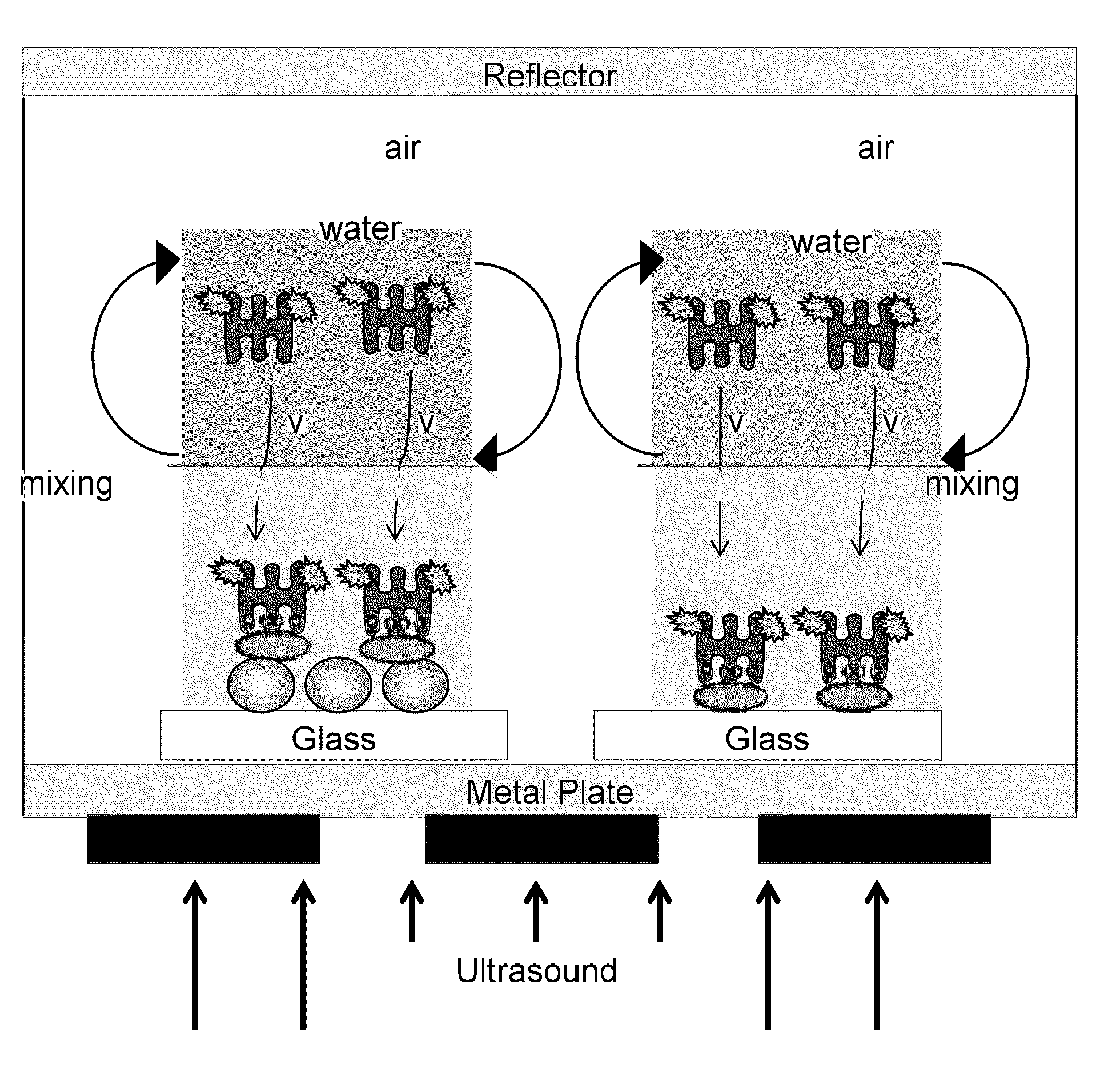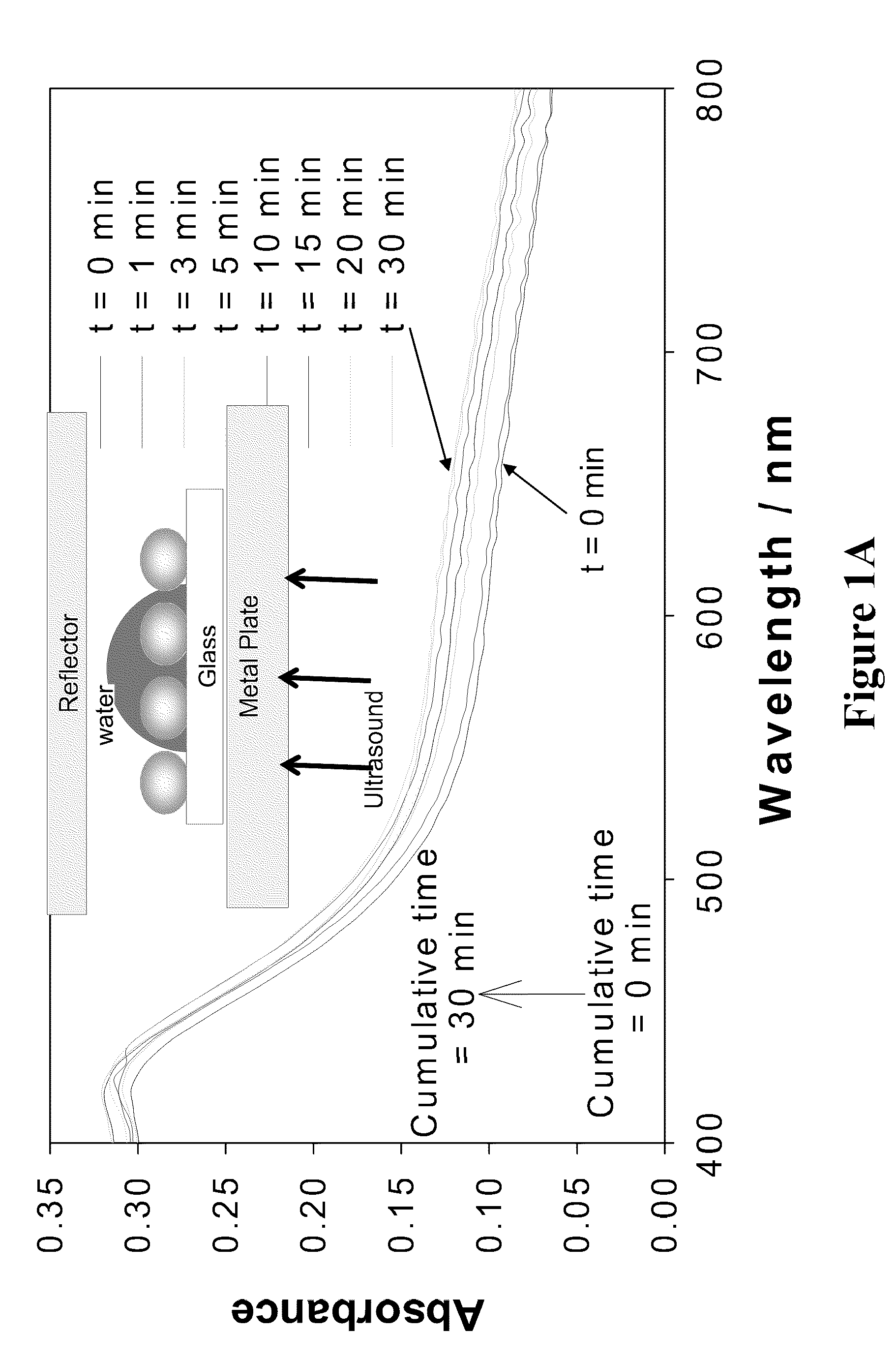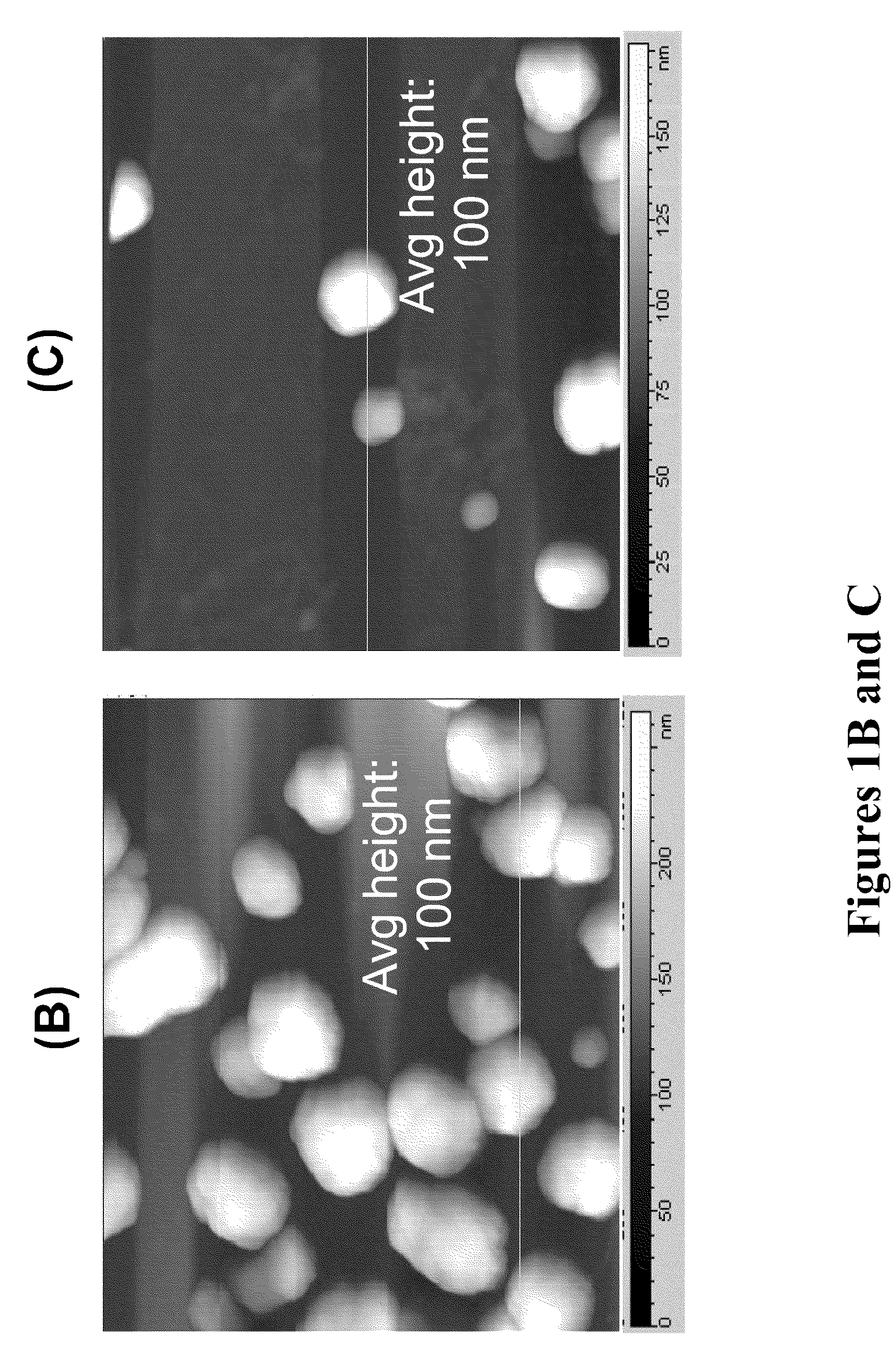Sonication-assisted metal-enhanced fluorescence (SAMEF)-based bioassays
a fluorescence and metal-enhanced technology, applied in the field of metal-enhanced detection systems, can solve the problems of inability to achieve bioassay detection events in time, and inability to detect bioassay events in time, so as to increase the kinetic movement of molecules and reduce the assay time
- Summary
- Abstract
- Description
- Claims
- Application Information
AI Technical Summary
Benefits of technology
Problems solved by technology
Method used
Image
Examples
Embodiment Construction
[0088]The present invention relates to systems and methods for increasing and detecting the fluorescence of fluorescent, non-fluorescent compounds and light emitted from chemiluminescence reactions, by using low-intensity ultrasound to increase the kinetics of the system thereby increasing chemical or binding reactions to increase speed of detection system.
[0089]Since the first observation of cavitation effects created by ultrasound in 1895,14 ultrasound has found many applications in chemical and physical processes, most notably, in speeding up chemical reactions (i.e., sonochemistry).15 Cavitation effects, which are referred to rapid formation and implosion of small bubbles in a liquid, are typically observed for ultrasound frequencies lower than 1 MHz.16 The implosion of bubbles (symmetric cavitation) result in hot spots in liquids and the temperature inside the bubble can reach in excess of 5000 K, which is subsequently quenched by surrounding water molecules at a rate of 1010K / ...
PUM
| Property | Measurement | Unit |
|---|---|---|
| size | aaaaa | aaaaa |
| temperature | aaaaa | aaaaa |
| frequency | aaaaa | aaaaa |
Abstract
Description
Claims
Application Information
 Login to View More
Login to View More - R&D
- Intellectual Property
- Life Sciences
- Materials
- Tech Scout
- Unparalleled Data Quality
- Higher Quality Content
- 60% Fewer Hallucinations
Browse by: Latest US Patents, China's latest patents, Technical Efficacy Thesaurus, Application Domain, Technology Topic, Popular Technical Reports.
© 2025 PatSnap. All rights reserved.Legal|Privacy policy|Modern Slavery Act Transparency Statement|Sitemap|About US| Contact US: help@patsnap.com



